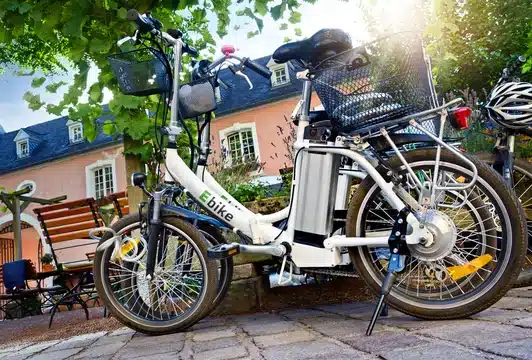
Especially in summer, nice weather invites you to go out on your e-bike. However, you should not leave your bike in the sun for too long during a break because of its e-bike battery – this can damage it.
On sunny days, many people like to go out by bike and play the latest Hellspin Casino. The journey to work may also be more pleasant on an electric bike. Thanks to the battery, you can easily cover longer distances on an e-bike. However, you should always consider the service life of the battery and not overuse it unnecessarily – because repairing it or buying a new one can be quite expensive and use up valuable raw materials.
One way to extend the service life of your e-bike battery is to protect it from direct sunlight. Leaving your e-bike battery in the sun for too long can heat it up and damage it.
WHAT HAPPENS IN THE SUN
You should keep your e-bike battery protected from the sun.
Like other motors, the e-bike battery can also overheat in the sun. The optimum temperature for the battery is between ten and 25 degrees Celsius. For storage, it should not even exceed 15 degrees. In summer, however, outside temperatures quickly rise above this guide value and the battery is affected all the more quickly.
High temperatures cause the internal resistance of the battery to rise. As a result, more energy is released from the battery cells in the form of heat. This in turn reduces the performance of the battery, as the energy released is not available to the motor.
Extreme heat can also damage the inside of the battery. In the worst case, a short circuit can occur.
Incidentally, batteries with a light-colored casing do not heat up as quickly as those in dark colors, as they reflect the sunlight and do not absorb it.
HOW TO PREVENT HEAT DAMAGE TO THE BATTERY
Despite the risk of overheating, you can still get from A to B on your e-bike in summer. To protect the e-bike battery from the sun and heat damage, you can keep these things in mind:
If possible, park the e-bike in the shade. Check the temperature of the battery regularly by placing the palm of your hand on it. If it seems too hot, take a break in the shade.
Make sure that the battery never gets hotter than 30 degrees Celsius.
If necessary, store the battery separately if it is too hot outside to leave it on the bike.
If the battery is not removable, protect it with a suitable cover.
For longer storage periods, the battery should be stored between ten and 15 degrees Celsius.
If the battery has heated up, wait until it has cooled down before charging it again. It is then best to charge the battery in a cool and shady place.
Retrofitting your bike to an e-bike: you have these options
Have you ever wondered whether it is possible to retrofit your own bike as an e-bike? There are many reasons for this: You no longer want to arrive sweaty at an appointment, you want to transport larger loads or you simply always have that annoying headwind that you have to fight against.
Many cyclists like their usual bike and don’t want to buy another one for a lot of money. Nevertheless, some like the idea of having a little help when pedaling. Then it might be interesting to convert your conventional bike into an e-bike.
REQUIREMENTS
Before retrofitting your bike to an e-bike, you should consider whether it meets the requirements. Not every bike is suitable for retrofitting to an e-bike. No matter how much you like your bike, you should still buy a proper e-bike or continue to ride with muscle power.
Therefore, check the following points before you buy the conversion materials:
- How stable is your bike? The motor and torque add weight that your bike must be able to withstand. If your bike has a steel frame, the weight should not be a problem. An aluminum frame, on the other hand, is less stable and therefore not necessarily recommended for retrofitting to an e-bike.
- As you will be riding at higher speeds with an electric motor and the tractive force is higher, your brakes should be powerful. Disc brakes are best.
- Make sure that the conversion kit you want fits your bike. It should always be compatible with the gears and the brake system. If in doubt, seek advice from a specialist store.
- Age and mileage also play a role: retrofitting is only recommended if your bike is only a few years old and has only been ridden a few thousand kilometers.






